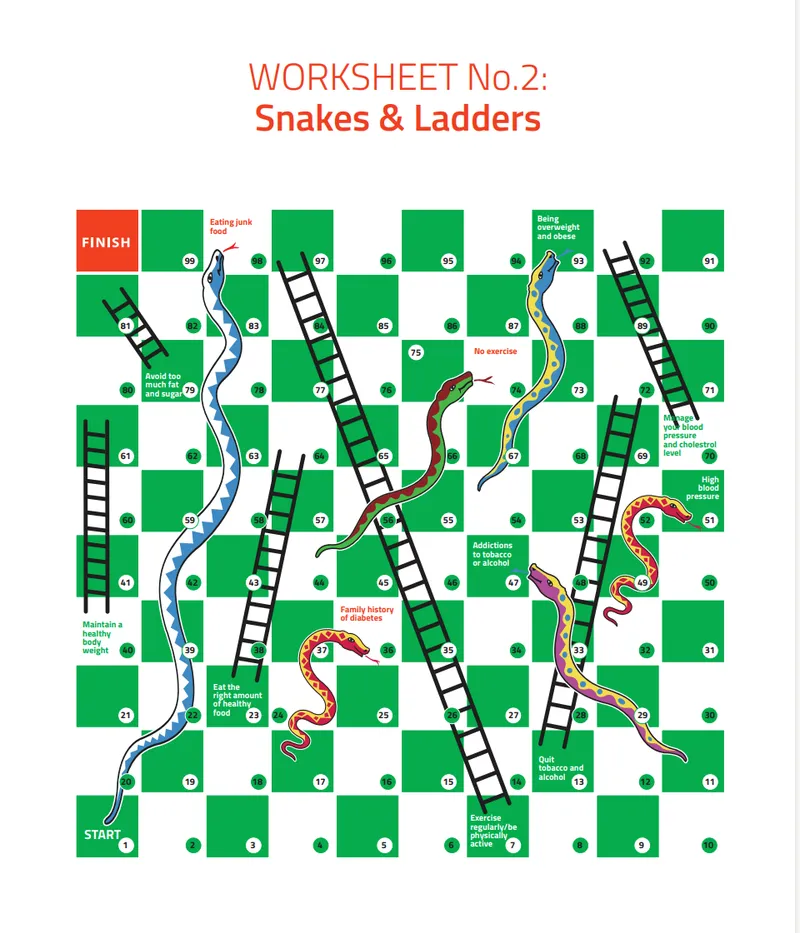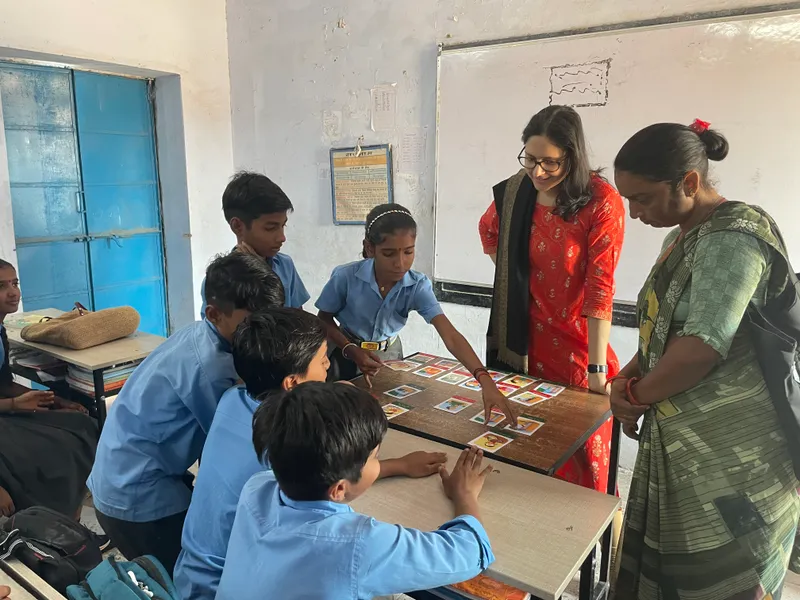This non-profit is using games to promote nutrition, healthy habits in children
Started in 2016, the Nourishing Schools Foundation aims to address the problem of malnutrition, lack of proper sanitation, etc., among school children.
Every Saturday, children from classes 4 to 9 in more than 230 government schools in India engage in activity-based games designed to teach important concepts such as nutrition and sanitation.
While some children engage in matching food image cards with clue cards to understand the benefits of various foods like jaggery, milk, and bananas, others participate in hands-on activities, learning to craft soap, soap dispensers, and handwashing stations.
These games come inside a toolkit provided by the Bengaluru-based non-profit organisation–Nourishing Schools Foundation (NSF).
Started in 2016, NSF aims to address the problem of malnutrition, lack of proper sanitation, etc., by spreading awareness about nutrition among school children and transforming them to become problem-solvers.
Now, the foundation is planning to roll out its toolkit to private schools as well, starting with Bengaluru and Delhi.
“We have followed a toolkit-based approach to make the children understand the importance of proper nutrition and sanitation. Our aim is to impart them with the right knowledge and transform them into thought leaders,” says Archana Sinha, Co-founder and CEO at NSF.
Nutrition and sanitation made fun

Archana Sinha, Co-founder and CEO at NSF.
The foundation approaches government schools and conducts a baseline survey covering factors like the students age, height, weight, dietary and handwashing habits, and more.
After conducting the survey, they share the results with the parents and the teachers. “The survey helps us in understanding the specific challenges a school is facing so we can help them accordingly,” Sinha adds.
The foundation provides the schools with a toolkit consisting of around 15 games and activities focused on nutrition, sanitation, and sustainable agriculture practices.
Sinha explains that in one of the games, children identify the symptoms of nutrition deficiencies with 'Foe cards’, and they get to know about the food sources that can help tackle these deficiencies with ‘Friend cards’.
With games such as Snakes & Ladders, rewards are given for positive behaviours, and punishments (snakebite) for negative behaviours like eating junk food, not eating fruits, etc.
The NGO also conducts an activity to make children understand the importance of using soap. In this, students apply chalk on their hands, shake hands with each other, and then wash their hands with plain water.
“But awareness alone is not enough, so we have small solution-driven projects as well,” she adds.
For instance, a guided activity is held to help children set up a school garden. The guidebook, which includes a vegetable calendar, provides all the step-by-step information, including how to plant, harvest, and sow the crop.
The programme is rolled out for two years in a school. In the first year, it spans over eight weeks, ending with a midline survey. In the second year, the foundation rolls out an upgraded version of the toolkit.
Sinha explains that since the start, they wanted to create a model that is scalable and collaborative in nature. Therefore, she decided upon the idea of having a toolkit.

There are around 15 games in a kit.
This kit is implemented in schools through collaborative efforts between the school staff and local NGOs operating within the same field in those schools’ communities. Teachers elect a student from the class who helps in conducting the activities.
In the initial year, the foundation’s team supports the NGOs in implementing the toolkit. After the first year, the NGOs take over the implementation of the toolkit, with ongoing support from the foundation.
At the end, an endline survey is conducted to see the overall impact on the children.
Sinha claims that their midline studies of over 2,500 children have shown a 14% point decrease in school children who are undernourished, a 32% point increase in school children who wash their hands with soap/sanitiser, and a 14% point increase in school children who said that they could take charge of their nutrition.
In the same vein, Okita M, a mother, shares that the toolkit has not only positively impacted her children’s eating habits, but has also made them confident in communicating with people outside the family and participating in group activities.

The toolkit will be rolled out in private schools in Bengaluru and Delhi
“They also ask for and consume more fruits now than before as they are aware of the health benefits,” she says.
So far, NSF has implemented its programmes in more than 230 government schools across the country, impacting over 60,000 children. Vishnu Swaminathan is the co-founder of the foundation, however, he primarily acts as an advisor.
The foundation says it receives grants and CSR funds for its implementation.
Sinha further explains that the toolkit for private schools will consist of an online module that will be available to the children for free. This will have videos about concepts such as balanced diet, nutrition, and more.
The foundation also provides toolkits specifically designed for private schools at a price of Rs 3,000 to Rs 5,000 per child per month.
“In a government school, you face absence of proper sanitation facilities or water amenities, but that may not be the case in a private school. Here, there are problems like obesity, balanced diet, or proper utilisation of amenities,” Sinha adds.
The online module will be available for private schools from May, and the programme will be rolled-out from around July this year.
The idea
Sinha, who started her profession as a journalist, pursued a Master’s degree later and ventured into management and consulting.
Being always interested in the social development sector, she decided to transition to the non-profit sector and began working at Ashoka Innovators for the Public, leading a nutrition programme.
During her visits to villages in Odisha, she discussed about nutrition with the local women and found out that though there are interventions for proper nutrition, it starts only when the woman is pregnant.
Sinha believes that knowledge about good nutrition and sanitation needs to be imparted in the formative years.

NSF has implemented its programmes in more than 230 government schools
This led her to start the Nourishing School Foundation.
Talking about challenges, Sinha explains that initially, the foundation was not fully aware of the specific challenges faced by children in government schools. It was through surveys that they gained a better understanding of those problems.
She adds that the foundation also had to navigate the challenge of integrating the toolkit into the school curriculum.
“Another challenge was to connect topics in health and nutrition to curriculum topics in science and math in an easy-to-understand manner and positioning the toolkit as an aid for teachers to encourage hands-on learning and student engagement rather than an additional responsibility,” she adds.
(Disclaimer: The article was updated to correct a factual error)
Edited by Megha Reddy







